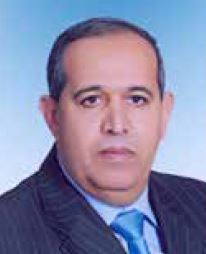Prof. Ahmed El-Sawalhy is currently the Director of African Union – Interafrican Bureau for Animal Resources (AU-IBAR). AU-IBAR has the continental mandate to support and coordinate the utilization of animal resources in Africa (livestock, fisheries, aquaculture and wildlife) for the well-being of its citizens. He is an Egyptian and has Master’s Degree in Veterinary Infectious Diseases from the Faculty of Veterinary Medicine in Zagazig University (1987) and a PhD in Animal Trypanosomiasis from the School of Public Health at the University of North Carolina (Chapel Hill, USA) in 1993.He has over 35 scientific publications in national and international peer-reviewed journals.
Prof. El-Sawalhy has made impressive contributions to scientific conferences the world over and as a focal point for funded projects on animal health issues, he enhanced veterinary infectious diseases education and training in Egypt. In his professional career as a veterinarian academic, he won several awards, including Award in Cattle Diseases from the Scientific Research and Technology Academy (dedicated to the late professor Ahmed Farid) and the prestigious Award of the Animal Insurance Fund (2004, Ministry of Agriculture Egypt). In addition to this, he obtained the Mansoura University Award in Veterinary Sciences in 2001.
Keen to support continental animal health and production initiatives in Africa to enhance food security and socio-economic development, Prof. El-Sawalhy became Chief Animal Health Officer at AU-IBAR in Nairobi, Kenya July 2006 and substantive Director in 2009. As Director he initiated, won and supervised several donor projects relating to animal health, animal production, trade and market development in animal resources products, fisheries and aquaculture governance. In discharging the mandates of AU-IBAR, he fostered partnerships with several bilateral and multilateral agencies including European Union, World Bank, USAD to name but a few.
Utilizing his vast experience, he initiated and supervised the production of several continental strategies, policies, and frameworks, including strengthening AU-IBAR’s capacity, for informed development of animal resources (Livestock, fisheries, aquaculture and wildlife) and hence the sustainable contribution to food security and socio- economic growth in Africa.


